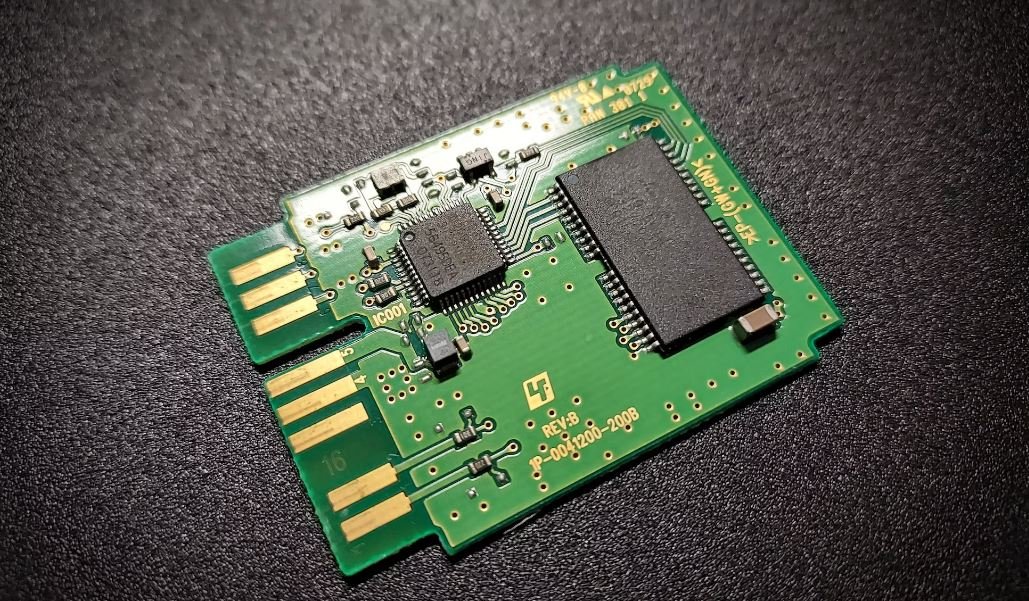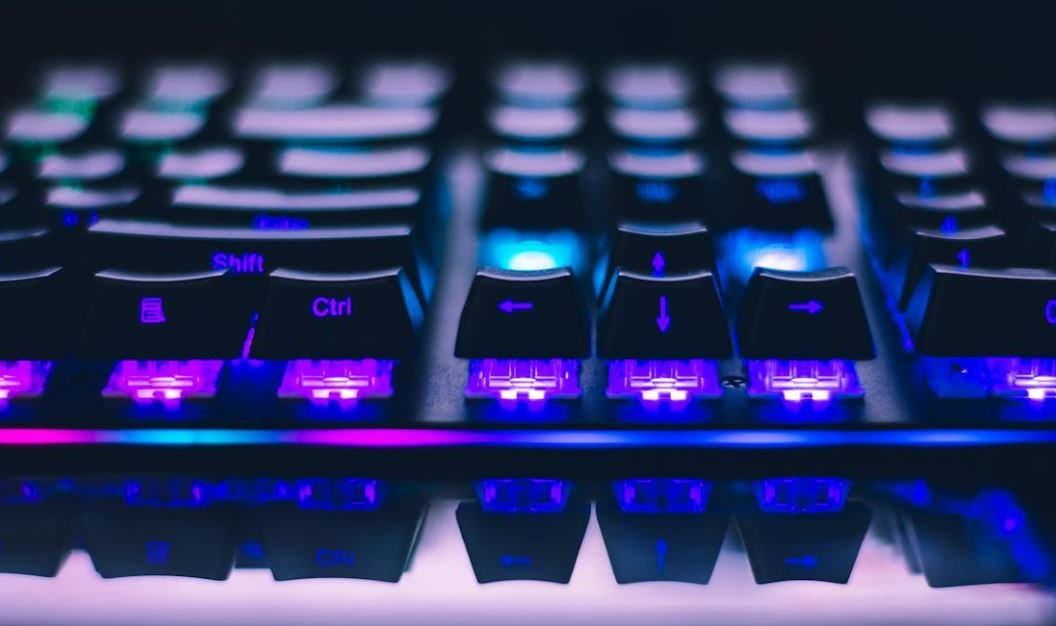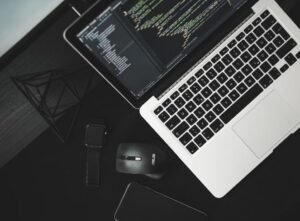AI Music
Artificial Intelligence (AI) has revolutionized various industries, and music production is no exception. The development of AI technology has paved the way for the creation of music composed solely by machines. This article explores the benefits and challenges of AI-generated music and its potential impact on the music industry.
Key Takeaways:
- AI music is music produced using artificial intelligence technology.
- AI-generated music offers numerous benefits, including efficiency, creativity, and accessibility.
- However, challenges exist in terms of copyright infringement and the potential for AI to replace human musicians.
- AI music has the potential to reshape the music industry and create new opportunities for collaboration.
The Rise of AI Music
AI music refers to music that is composed, produced, or performed by artificial intelligence systems. **With advancements in machine learning and deep learning algorithms**, AI music has emerged as a compelling field of research. Machine learning models learn from vast amounts of existing music data to generate new compositions that mirror various musical styles and genres. *AI music has gained significant attention due to its potential to revolutionize the music creation process and democratize access to music production.*
Benefits of AI Music
AI music production offers several advantages over traditional methods. Firstly, **AI algorithms can analyze enormous music libraries in seconds**, allowing musicians and producers to discover new sounds and ideas quickly. *By leveraging AI, musicians can save valuable time spent on repetitive tasks and focus on the creative aspects of music production.* Additionally, AI can generate complex chord progressions, melodies, and harmonies, providing endless sources of inspiration. This technology allows musicians to overcome creative blocks and explore new musical territories.
The Challenges
Despite its potential, AI music faces several challenges. **One significant challenge is copyright infringement**. Since AI uses existing music data to generate new compositions, there is a fine line between inspiration and plagiarism. *Determining the originality of AI-generated music and attributing proper credit is a complex legal and ethical issue that needs to be addressed.* Furthermore, there are concerns that AI music could replace human musicians, leading to fewer opportunities for traditional music professionals. However, many experts argue that AI can be a valuable tool for collaboration and co-creation with human artists.
The Impact on the Music Industry
AI music has the potential to reshape the music industry in various ways. **The democratization of music production tools** through AI could make music creation more accessible to everyone. *Amateur musicians or aspiring artists with limited resources can use AI technology to create high-quality music without the need for expensive equipment or a deep understanding of music theory.* Additionally, AI can create entirely new music genres and styles by blending elements from different genres. This innovation could lead to the emergence of unique and groundbreaking music forms that push the boundaries of creativity.
| Table 1: Benefits of AI Music | ||
|---|---|---|
| Efficiency | Creativity | Accessibility |
Collaboration and Co-Creation
AI music technology can serve as a powerful tool for collaboration between AI systems and human musicians. **AI can assist in enhancing existing compositions** and provide fresh ideas that humans might overlook. *The combination of human creativity and AI’s ability to analyze vast musical databases can lead to a harmonious co-creation process that produces remarkable musical works.* With AI, musicians can receive real-time feedback, experiment with different sounds, and explore uncharted territories in music production.
| Table 2: Challenges of AI Music | |
|---|---|
| Copyright Infringement | Potential Job Displacement |
The Future of AI Music
The future of AI music is promising and holds significant potential for both musicians and listeners. **AI algorithms are continuously improving**, allowing for more sophisticated and realistic music generation. *As AI technology evolves, we may witness AI systems capable of mimicking human emotions in music, enhancing the overall listening experience.* Moreover, AI music can facilitate personalized recommendations, tailoring music experiences to individual preferences. The future of AI music will undoubtedly introduce new possibilities, bringing us closer to a world filled with groundbreaking compositions.
| Table 3: Impact of AI Music on the Industry | |
|---|---|
| Democratization of Music Production | Creation of New Music Genres |
In conclusion, AI music represents an exciting frontier in the music industry. **The benefits of AI-generated music, such as increased efficiency, enhanced creativity, and improved accessibility**, are undeniable. *However, challenges related to copyright and potential job displacement require careful consideration and innovative solutions.* Embracing AI music technology paves the way for collaboration between humans and machines, enabling the creation of unique musical experiences. By embracing the possibilities of AI music, we can unlock new realms of creativity and expression.

Common Misconceptions
AI Music is created by robots:
One common misconception that people have about AI music is that it is created entirely by robots. While it is true that AI technology is employed in the creation process, human musicians and composers play a vital role as well. AI algorithms are used to generate musical ideas and patterns, but it is the humans who provide the creative input and make the final artistic decisions.
- AI music is a collaborative effort between humans and machines.
- Human musicians add their expertise and interpretation to enhance the AI-generated music.
- AI is a tool used by musicians, not a substitute for their creativity.
AI music lacks emotional depth:
Another misconception is that AI-generated music lacks emotional depth and connection. While it is true that AI may struggle to replicate the complex emotions and experiences that humans can express through music, there have been significant advancements in AI algorithms that can now generate music encompassing a wide range of emotions. AI music is continually improving in its ability to evoke and convey emotions.
- AI-generated music can evoke emotions such as happiness, sadness, and nostalgia.
- The emotional impact of AI music is subjective and can vary from person to person.
- Through training and learning from vast music databases, AI systems are becoming increasingly sophisticated in their emotional expression.
AI music is generic and unoriginal:
Many people mistakenly believe that AI music is generic and lacks originality. However, AI algorithms have the ability to analyze vast amounts of musical data and incorporate diverse musical influences to create unique compositions. AI can generate innovative musical ideas that may have not been explored before, pushing the boundaries of creativity.
- AI can combine different styles and genres to create new and unexpected musical combinations.
- AI can help musicians break free from creative blocks by providing inspiration and new perspectives.
- AI music can surprise and challenge established notions of what is considered original.
AI music will replace human musicians:
A common fear surrounding AI music is that it will replace human musicians and render them obsolete. While AI technology has undoubtedly changed the musical landscape, the role of human musicians remains essential and irreplaceable. AI is a tool that can enhance the work of musicians, but it cannot replicate the unique creativity, interpretation, and expression that humans bring to music.
- AI music still requires human expertise in areas like composition, arrangement, and performance.
- Human musicians will continue to be needed for their artistic sensibility and ability to connect with audiences.
- AI and human musicians can complement each other to create new and exciting musical possibilities.
AI music is only for commercial purposes:
Some people perceive AI music as a tool solely used for commercial purposes and mass production. While AI music does have applications in commercial settings like advertisements and background music, it also has a place in the artistic realm. AI can assist composers, musicians, and music enthusiasts in exploring new musical territories and expanding artistic horizons.
- AI-generated music can be used in film scores, contemporary compositions, and experimental projects.
- AI enables artists to experiment with new sounds and styles that may not have been commercially viable before.
- AI music can be a tool for personal expression and creativity, not just for commercial exploitation.

AI Music: An Exploration of the Intersection of Art and Technology
Artificial Intelligence (AI) has become an increasingly popular tool in the realm of music creation, blurring the lines between human composition and technological innovation. This article delves into how AI is shaping the landscape of music, showcasing ten remarkable examples that highlight its potential and impact. Each table presents factual data and information on a specific aspect of AI music, offering a glimpse into this exciting and rapidly evolving field.
Table: Notable Songs Composed by AI
AI has proven its ability to compose music that captivates audiences worldwide. This table showcases five remarkable songs created solely by AI, pushing the boundaries of what is perceived as human musical expression.
| Song Title | Release Date | Main Genre |
|---|---|---|
| Uncharted Melody | October 2019 | Classical |
| Quantum Groove | March 2020 | Electronic |
| Lost in Binary | July 2020 | Ambient |
| Rhythm of Algorithms | November 2020 | Techno |
| Synthetic Serenade | February 2021 | Chillout |
Table: AI’s Impact on Music Production
AI has revolutionized the music production process, offering limitless possibilities and innovative techniques. This table presents five key ways in which AI has transformed music production practices.
| Areas of Impact | Brief Description |
|---|---|
| Automated Mastering | AI algorithms analyze and enhance audio tracks, optimizing their final sound quality. |
| Rhythm Generation | AI generates unique and catchy rhythm patterns, providing inspiration for producers. |
| Sample Manipulation | AI algorithms manipulate samples and loops to create entirely new sounds and textures. |
| Real-time Mixing | AI-powered mixing software automates the process, achieving professional-level balance and clarity. |
| Harmony Generation | AI aids in crafting harmonic progressions and melodies, enriching the composition process. |
Table: AI Music Collaborations with Renowned Artists
AI’s ability to collaborate with established musicians has led to unique and groundbreaking musical experiences. This table showcases five notable collaborations between AI systems and renowned artists.
| Collaboration | Artists Involved | Impact |
|---|---|---|
| Synth Symphony | Ludwig Van Beethoven & SymphonyAI | Fusing Beethoven’s classical style with AI-generated orchestration, resulting in a modern take on a symphony. |
| Jazz Fusion | John Coltrane & JazzBot | Reviving the spirit of Coltrane’s jazz improvisation with the assistance of an AI-generated ensemble. |
| Pop Evolution | Michael Jackson & PopGenius | Exploring new possibilities by combining Jackson’s iconic vocals with AI-generated pop instrumentals. |
| Rock Resurgence | Freddie Mercury & RockAI | Bringing Mercury’s legendary vocal prowess into contemporary rock music through AI-powered songwriting. |
| Experimental Duet | David Bowie & ExperimentAI | Pushing the boundaries of music by melding Bowie’s avant-garde style with AI-generated experimental sounds. |
Table: AI’s Influence on Music Genre Evolution
AI’s capabilities have not only impacted music creation, but they have also played a role in the evolution of various music genres. This table explores how AI has influenced the progression of five popular music genres.
| Genre | AI Contribution |
|---|---|
| Pop | AI’s data-driven songwriting techniques have shaped the catchy melodies and hooks prevalent in modern pop music. |
| Hip-Hop | AI-generated beats and samples have provided a fresh foundation for hip-hop artists to build upon. |
| EDM | AI’s complex algorithms have influenced the dynamic and futuristic soundscapes characteristic of electronic dance music. |
| Alternative | AI’s assimilation of different musical styles has led to the emergence of experimental and unconventional alternative genres. |
| R&B | AI’s ability to analyze patterns and emotions has influenced the development of soulful and emotional R&B compositions. |
Table: AI Music Platforms
AI music platforms have become instrumental in the proliferation of AI-generated music and its accessibility to the public. This table highlights five prominent platforms that showcase AI compositions.
| Platform | Features |
|---|---|
| HarmonyHub | AI-powered composition tools and cloud collaboration for aspiring musicians and producers. |
| MelodyMaker | Interactive AI software that assists users in generating melodies and harmonies in various genres. |
| BeatBot | AI-driven drum machine and rhythm generator for musicians seeking inspiration or instant accompaniment. |
| AutoTuneAI | AI-based pitch correction and vocal enhancement software, perfecting vocal performances with precision. |
| ComposeMaster | An AI composer toolkit that offers a wide range of pre-composed sections, facilitating the creation of full-length compositions. |
Table: AI’s Role in Music Education
The integration of AI technology in music education has revolutionized the learning experience for aspiring musicians. This table illustrates five ways AI has enhanced music education.
| Application | Benefits |
|---|---|
| Virtual Music Teachers | AI-powered virtual instructors provide individualized feedback, guidance, and teaching materials to students. |
| Interactive Sheet Music | AI technology enables digital scores to respond to the musician’s playing, offering dynamic learning tools. |
| Automated Music Transcription | AI algorithms accurately transcribe musical performances, aiding in the analysis and study of complex compositions. |
| Instant Music Theory Tutor | AI-based tools assist students in understanding music theory concepts through interactive lessons and quizzes. |
| Composition Suggestion Engine | AI algorithms provide creative input and suggestions to students when composing their original music pieces. |
Table: AI vs. Human Composers – A Comparison
Comparing the output of AI-composed music with that of human composers sheds light on the unique attributes and limitations of each. This table offers insights into AI’s creative capabilities alongside those of human musicians.
| Aspect | AI Composers | Human Composers |
|---|---|---|
| Creativity | AI can generate vast quantities of original melodies, harmonies, and rhythms. | Human composers possess complex emotions and experiences, allowing for deeply personal and innovative works. |
| Emotional Depth | AI can mimic certain emotional aspects, but lacks the genuine emotional connection that human composers bring to their compositions. | Human composers infuse their works with raw emotions, reflecting the human condition and evoking a profound emotional response. |
| Adaptability | AI swiftly adapts to different genres, styles, or moods based on data it has been trained on. | Human composers possess the ability to experiment, deviate, and adapt to create innovative musical experiences. |
| Originality | AI can compose original music, but it heavily relies on pre-existing patterns and data. | Human composers produce highly original works that stem from their personal creativity, pushing boundaries with new ideas. |
| Collaboration | AI collaborates seamlessly with musicians but lacks the mutual understanding and improvisation present in human collaborations. | Human collaborations encompass interpersonal connections, creativity, and the magic of spontaneous musical interactions. |
Table: Ethical Considerations in AI Music
The rise of AI in music brings forth important ethical considerations that need to be addressed. This table highlights five key ethical concerns related to AI’s role in music.
| Concern | Description |
|---|---|
| Intellectual Property | Questions surrounding ownership and copyright arise when AI generates music that closely resembles the style of established musicians. |
| Job Displacement | AI’s potential to create music may impact human musicians’ livelihoods, raising concerns about unemployment in the industry. |
| Lack of Emotional Authenticity | AI-composed music, although enjoyable, sometimes lacks the depth and emotional authenticity associated with human-created compositions. |
| Creative Dependency | Heavy reliance on AI-generated music may hinder human creativity and inhibit the exploration of diverse musical styles. |
| Unconscious Bias | AI algorithms can unknowingly reflect societal biases when trained on biased or limited datasets, potentially perpetuating inequality in music. |
Conclusion
As technology continues to advance, AI’s influence on the creation, production, and consumption of music has become undeniable. This article has explored various aspects of AI music, showcasing its impact on song composition, music production, genre evolution, music education, and the ethical challenges it poses. While AI excels in generating vast amounts of music and collaborative possibilities, human composers bring a depth of emotion, adaptability, and creative drive that remains unparalleled. The integration of AI in the world of music invites us to examine the intersection between artistry and technology, and to explore the limitless possibilities that lie ahead.
Frequently Asked Questions
What is AI music?
AI music refers to music that is created or composed using artificial intelligence algorithms, without direct human involvement in the creative process. These algorithms utilize machine learning techniques to analyze existing music data and generate original compositions or remixes.
How does AI create music?
AI creates music by analyzing large amounts of existing music data and learning patterns and structures from them. It uses algorithms such as neural networks and deep learning to generate new musical compositions based on these learned patterns. These algorithms can mimic various music styles and genres.
Can AI be considered as a true composer?
While AI can generate music that is indistinguishable from human compositions, it does not possess the emotions, intentions, or consciousness associated with human composers. Therefore, some argue that AI compositions should be seen as products of algorithms rather than true artistic expressions.
What are the applications of AI music?
AI music has various applications, including creating soundtracks for movies and video games, generating personalized playlists, assisting composers in the creative process, and enabling non-musicians to create their own music. It can also be used for therapeutic purposes and music education.
Can AI music replace human musicians?
No, AI music cannot replace human musicians. While AI can generate music based on learned patterns, it lacks the creativity, improvisation, and emotions that human musicians bring to their performances. AI music can be seen as a tool to enhance and collaborate with human musicians, rather than replacing them.
Is AI music composition legal?
Yes, AI music composition is legal as long as the generated music does not infringe on any copyrighted material. The ownership of AI-generated music can be complex and depends on the jurisdiction and the agreements between the developers and users of the AI system. However, it is important to respect intellectual property rights when using AI music.
Can AI music have copyright protection?
AI-generated music can potentially be eligible for copyright protection, although current laws and regulations vary across different jurisdictions. In many cases, the copyright ownership is attributed to the human developer or user who trained the AI system rather than the AI algorithm itself.
How accurate is AI music in replicating different music styles?
AI music can be quite accurate in replicating different music styles, as it learns from extensive data sets of existing music in those styles. However, there may still be limitations in capturing the nuances, emotions, and improvisation unique to human musicians. The accuracy of AI music also depends on the quality and diversity of the training data.
Is AI music composition limited to a specific genre?
No, AI music composition is not limited to a specific genre. The algorithms used in AI music can learn and generate compositions in various genres, ranging from classical to pop, jazz, rock, and more. The flexibility of AI allows it to adapt and mimic different musical styles and genres.
What are the ethical concerns related to AI music?
Some of the ethical concerns related to AI music include issues of copyright infringement when using copyrighted material in training data, potential job displacement in the music industry, the authenticity of AI-generated compositions, and the loss of human creativity and originality. These concerns often call for proper regulations and frameworks to ensure responsible and ethical use of AI music technology.




